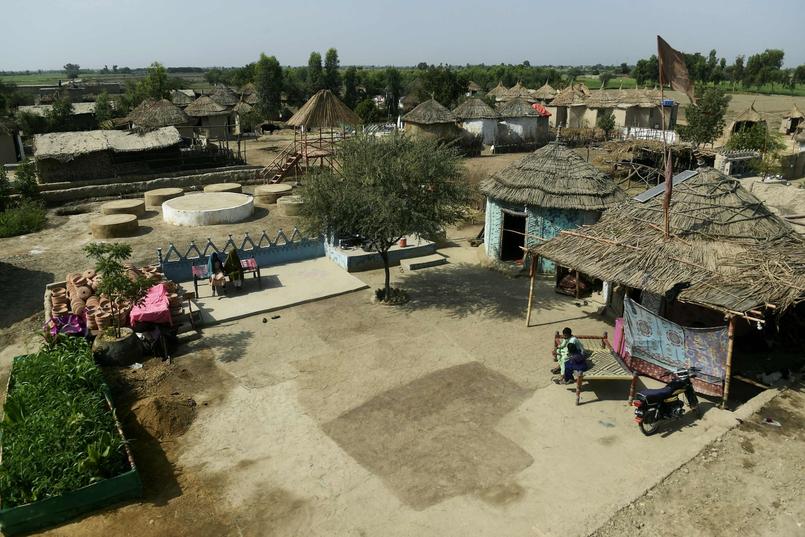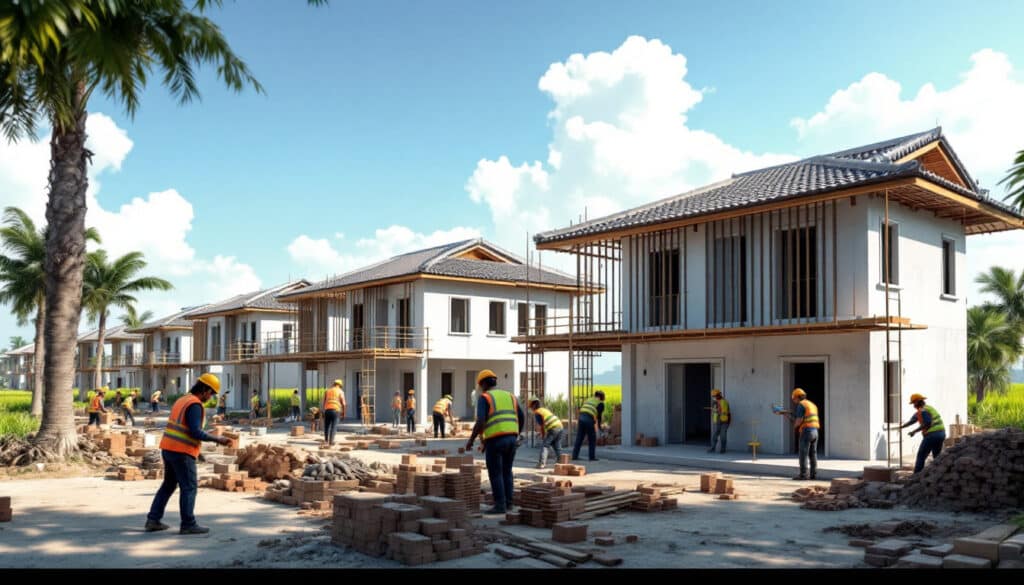Table of Contents
ToggleSara Bell: The Future of Smart Grids and Their Impact on Energy Efficiency
Sara Bell discusses the growing importance of smart grids in the construction sector, highlighting their essential role in improving the energy efficiency of buildings. She emphasizes how these intelligent electrical networks enable optimized energy consumption management, thereby helping to reduce costs and limit carbon footprint. By integrating advanced technologies, buildings can not only meet the energy needs of their users but also flexibly adapt to fluctuations in electricity demand. The future is therefore shaping towards a synergy between smart buildings and smart grids, uniting comfort, energy performance, and sustainability.
Sara Bell: Visionary of Smart Grids for Energy Efficiency
Sara Bell, a pioneer in the field of smart grids, has raised crucial questions regarding the integration of these technologies into modern buildings. She asserts that the future of our cities depends on the ability to transform traditional infrastructures into intelligent systems capable of adapting to fluctuating energy needs.
The potential of smart grids goes far beyond mere improvement in electricity distribution. According to Bell, these systems provide unprecedented energy efficiency, promoting the reduction of consumption and electricity bills. She insists that intelligent buildings equipped with sensors and advanced technologies can optimize their energy consumption in real time, thus minimizing waste.
In this innovative perspective, smart grids play a fundamental role, not only improving sustainability but also encouraging users to become active participants in their consumption. Bell concludes that the implementation of smart grids in buildings represents a necessary revolution to achieve energy transition goals and reduce our carbon footprint.

Sara Bell: Pioneer of Innovation in Smart Grids and Energy Efficiency
Sara Bell is a recognized professional in the field of energy innovation, with a particular focus on integrating smart grids into modern buildings. After earning her energy engineering degree from the University of Paris, she quickly realized that the future of energy efficiency relies on harmonizing intelligent technologies with built infrastructures. Since then, Sara has dedicated her career to designing innovative energy systems that transform electricity consumption in communities.
Her professional journey began at a research company dedicated to energy technologies, where she had the opportunity to work on innovative projects related to intelligent electrical networks. Fascinated by how smart grids can optimize energy management and reduce costs for end users, Sara quickly understood that these systems represent a major advancement in the construction and real estate sector. She then chose to specialize in the impact of smart buildings on energy efficiency.
With the emergence of smart buildings, Sara saw a golden opportunity to contribute to the energy transition. These constructions are designed to communicate with electrical grids, thus adapting to variations in electricity demand. By anticipating periods of high consumption, these buildings can reduce their electricity needs by using advanced management systems. This includes curtailing consumption during critical moments or optimally using available renewable energy sources.
Sara’s work has also highlighted the importance of adequate regulation in the use of smart grids. Over the years, she has advised several governments and municipalities on establishing standards favorable to energy infrastructures. According to her, a flexible and innovation-friendly regulatory framework is essential to encourage the adoption of these technologies. Indeed, the challenges related to integrating decarbonized energy and the requirements for energy performance are at the heart of her concerns.
In collaboration with other industry experts, Sara has participated in several studies on the tangible benefits of smart grids in buildings. These studies have demonstrated not only substantial energy savings but also significant reductions in greenhouse gas emissions. By aligning smart buildings with electrical networks, energy management becomes more reactive and sustainable, allowing communities to reduce their carbon footprint.
Moreover, her commitment to promoting smart grids and smart buildings within local communities has led to the creation of various educational workshops. These initiatives aim to raise public awareness about the advantages that these technologies can offer in terms of energy savings and sustainable development. Many citizens have thus been able to learn best practices regarding energy management and the use of renewable resources.
In summary, Sara Bell positions herself as a key figure in the field of smart grids and smart buildings. Her contributions continue to influence the construction sector and envision a sustainable future where energy efficiency will be at the core of architectural and urban concerns. Thanks to her expertise, the advancements made in this field are significant and mark a crucial step towards a greener and more responsible future.
FAQ about the Future of Smart Grids in Buildings and Their Impact on Energy Efficiency
A: Smart grids, or intelligent electrical networks, represent a technological advancement that improves electricity management and distribution, making the system more efficient and sustainable.
A: Smart grids allow for better regulation of electricity consumption, optimize energy resources, and facilitate the integration of renewable energies, thereby improving the energy efficiency of buildings.
A: Smart buildings benefit from system automation, optimized energy management, reduced operating costs, and increased comfort for users.
A: Integrating smart grids requires investments in infrastructure, technological adaptations, and user awareness on new consumption practices.
A: Regulations encourage smart grid initiatives by offering tax incentives and certification programs to improve the energy efficiency of buildings.
A: Data provides critical visibility into energy consumption, allowing for proactive decision-making and optimization of the performance of smart buildings.
















